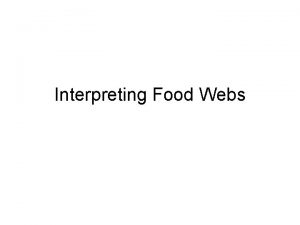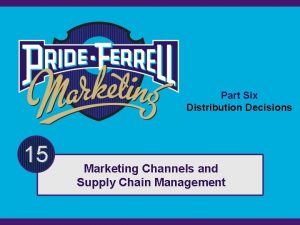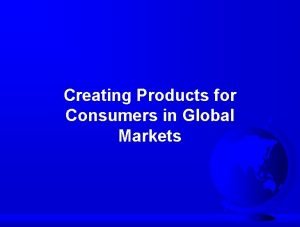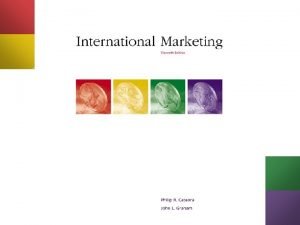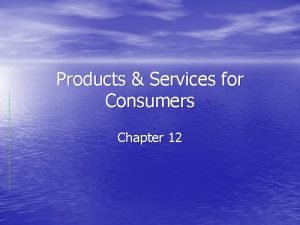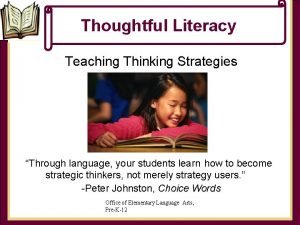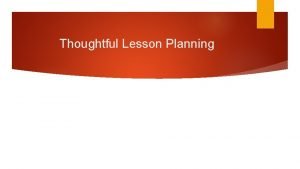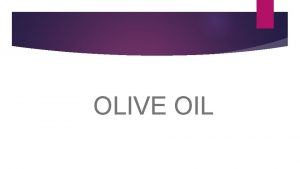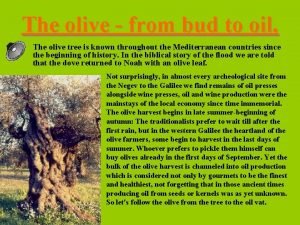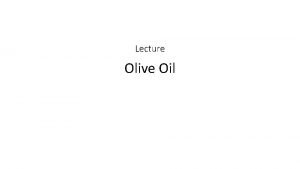THOUGHTFUL CONSUMERS Typical products in our area Olive








- Slides: 8

THOUGHTFUL CONSUMERS Typical products in our area

Olive oil in Andalusia • It is a product we buy from farm to plate • It grows easily in our area • The social economy of most olive farmers is organized in cooperative societies Waste management Fertilizer/Soil condicioner Animal feed Production of activated carbons It can be used to replace water in various parts of olive oil production • To make soaps • • We reach to the conclusion that olive oil is a sustainable product

Red prawn Waste management • Animal feed in fish farms • Sometimes used as fertilizers (in Tarifa there’s a factory where this activity is realised) • Typical in Huelva’s coast • Captured by halfindustrial and traditional fishing • Just adults specimens are captured, to permit its regeneration We consider the red prawn a sustainable product

n • The pork is free-ranged and it’s feeded in the countryside in a long period of time, very near to our homes in the city, so it’s a product from farm to plate • It is very valued internacionally, and also considered a grand cuisine product • This product is more expensive if the pork has been better breeded • We take advantage of every part of the pork, so anything is wasted Iberian ham Our conclusion is that iberian ham is a very sustainable product

Tomato • It is a product we buy from farm to plate • 94, 5% of tomato’s weight is water • 75% of the American tomato consumption comes from processed tomatoes Waste management: • To generate electric current 0, 3 watts of electricity produced for every 10 miligrams of tomato waste, but it’s believed that technology can be scaled up We consider tomato a sustainable product

• It’s a cereal grain, native from Asia and has been cultivated from more than 7000 years • It rises in a hot and wet floor and it can measure nearly one metre Rice Waste management: • Rice hulls are used as building material, fertilizer, insulation material or fuel • Although it’s a product from farm to plate, it has to go to a factory to eliminate waste and hulls • It causes deterioration on the floor, air and water contamination We don’t consider rice a very sustainable product, but we think we can make it more sustainable by using other techniques

• A product from farm to plate • Spanish and much Dutch asparagus are white, as it grows beneath the soil and cut just as the tips emerge • Packs a nutricional punch, high levels of vitamins A and C, potassium, iron and calcium Waste management Asparagus tin • Trim away the last inch of irretrievably dried-out, extrawoody ends • Slice the remainder of the asparagus ends into thin coins • Sauté, steam, blanch, roast or even serve the coins raw as part of a salad We reach to the conclusion that asparagus tin is a sustainable product

• The tradicional chickpeas stew is one of the main dishes in our gastronomy (we eat legumes 3 times a week) • They are a dry farming product • Most of the time they’re grown by small, familiar farmers Chickpeas Waste management • Chickpeas keep soils healthy (they enrich soil with nitrogen) • Animal feed We are worried about genetic transformations in chickpeas crops, but we basically consider them a sustainable product They can be considered a good example of Slow Food concept
